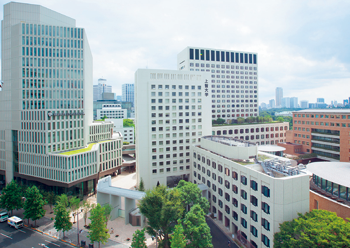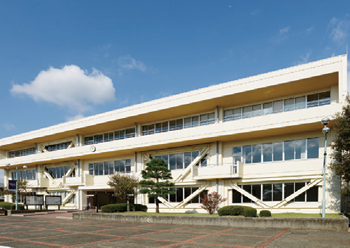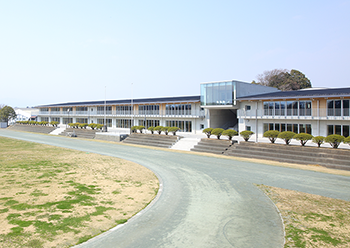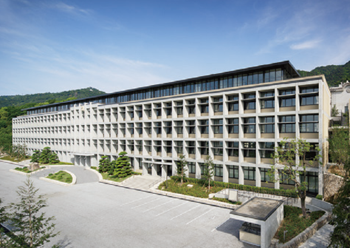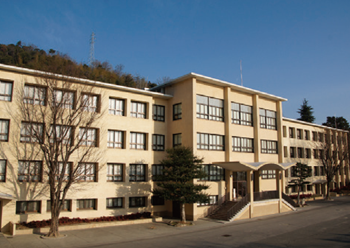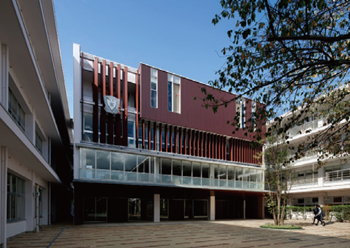Sophia School Corporation
Message from the Chancellor
Sali Augustine, S.J.
Chancellor of Sophia School Corporation
What is your mission? In January 2025, an NHK program paid attention to this question at the Angkor Wat Exhibition Corner in Bldg.6 of Sophia University. This exhibition marked the completion of the so-called ‘Sophia Mission’ in Cambodia, a partnership that has spanned over 33 years and has seen significant contributions made by Professor Ishizawa Yoshiaki and the university. It focused not only on research, but also on developing human resourcing and training, with his philosophy, of international cooperation ‘by the Cambodians, for the Cambodians’. As a Sophia student, and inspired by his mentor, Prof. Ishizawa found his lifelong mission in Cambodia and considered this as Sophia Mission based on our educational principle, “For Others, With Others”. We hope that our current students would also find their mission during their student life and make a lifelong commitment.
Our journey began with the arrival of Saint Francis Xavier to Japan in 1549, with a strong thirst for knowledge and a recognition of the value of contributing to Japanese society through learning and education. He was one of the founding members of the Society of Jesus (Jesuits), a Catholic male religious order, and his vision of “creating a university in Japan’ s capital” was passed on to Jesuit priests who eventually founded Sophia University in 1913 and Rokko Junior/Senior High School in 1937, Sophia University Junior College Division (established as Sophia Junior College) in 1973, Eiko Gakuen Junior and Senior High School in 1947, Hiroshima Gakuin Junior and Senior High School in 1956, and Sophia-Fukuoka Junior-Senior High School in 1932, now under the Sophia School Corporation. Today, the world is facing various challenges such as violent conflicts or human-made tragedies, climate changes, etc., so it is even more crucial to focus on our mission today which is rooted in Christian humanism. Our long-term plan for the school corporation called “Grand Layout 3.0 – Towards 2030” (2023-2030) and its 10 Commitments are truly guided by the founding philosophy “Sophia – Bringing the World Together,” and our education spirit, “For Others, With Others” to undertake various reforms in response to a turbulent world.
Responding to the call of Pope Francis, to be pilgrims of hope and mercy, Sophia University gratefully remembers all our benefactors for their outstanding contributions to our mission of education, research, and social engagement. In order to fulfill our commitments, your cooperation and support is inevitable. I seek your understanding and cooperation as we
pursue these endeavors together in the spirit of HOPE.
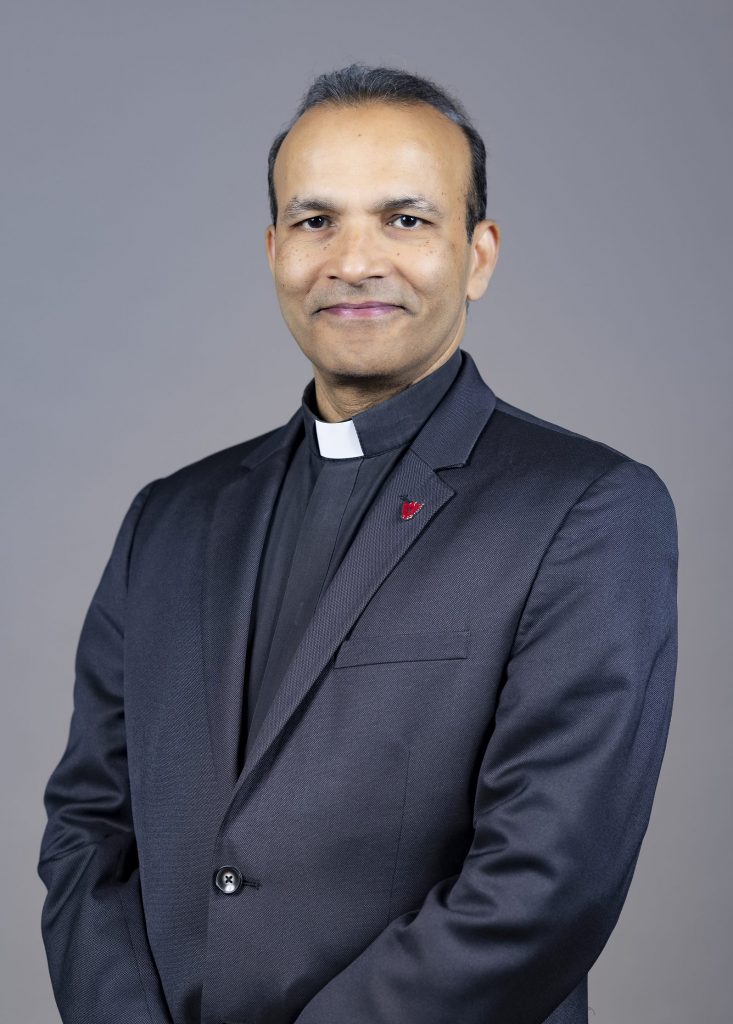
[Profile]
Chancellor of Sophia School Corporation; Professor, Faculty of Global Studies
Obtained bachelor’s degrees in Political Science from the University of Calicut, India and Philosophy from Jnana-Deepa Vidyapeeth in Pune, India.
Subsequently, graduated from the Faculty of Theology, Sophia University and received his M.A and Ph.D. in Area Studies (Ethnic Politics) at the Graduate School of Foreign Studies.
Teaching as Lecturer in the Faculty of Literature(2007), Associate Professor in the Faculty of Theology(2009), Professor in the Faculty of Global Studies(2016), he served as Vice President for Student Affairs (2017), and Trustee for General Affairs of Sophia School Corporation (since 2018), before becoming Chancellor of Sophia University since May 2023.
Society of Jesus and its Educational Initiatives
Foundation of the Society of Jesus
The Society of Jesus is a Catholic male religious order founded by Saint Ignatius of Loyola from the Basque region in northern Spain, and a group of six like-minded students at the University of Paris, including Saint Francis Xavier. Its foundation was formally approved by Pope Paul III in 1540.
Inspired by the order’s charism of departing to all corners of the world to help others when sent by the Pope, Jesuits voyaged to North and South America, Africa, India, and beyond. Those missionaries were also commissioned to the Council of Trent, convened to reform the Catholic Church.
Educational Initiatives
Right from the order’s founding, Jesuits recognized that school-based education made a tremendous contribution to shaping individuals and enhancing social and spiritual values.
Beginning with a Jesuit College opened in Messina, Sicily, in 1548, 31 schools and universities were established in major European cities over the eight years until the death of Ignatius in 1556, and Jesuit educational institutes spread around the world. Their educational methods shape character guided by the “Spiritual Exercises” written by Ignatius based on his own spiritual experiences. These focus on “magis,” the concept of gaining deeper human understanding and educating people to live “for others and with others.” Over 1.7 million students study in the 3,400 and more Jesuit schools and their associate schools, that are grounded in this educational philosophy.
